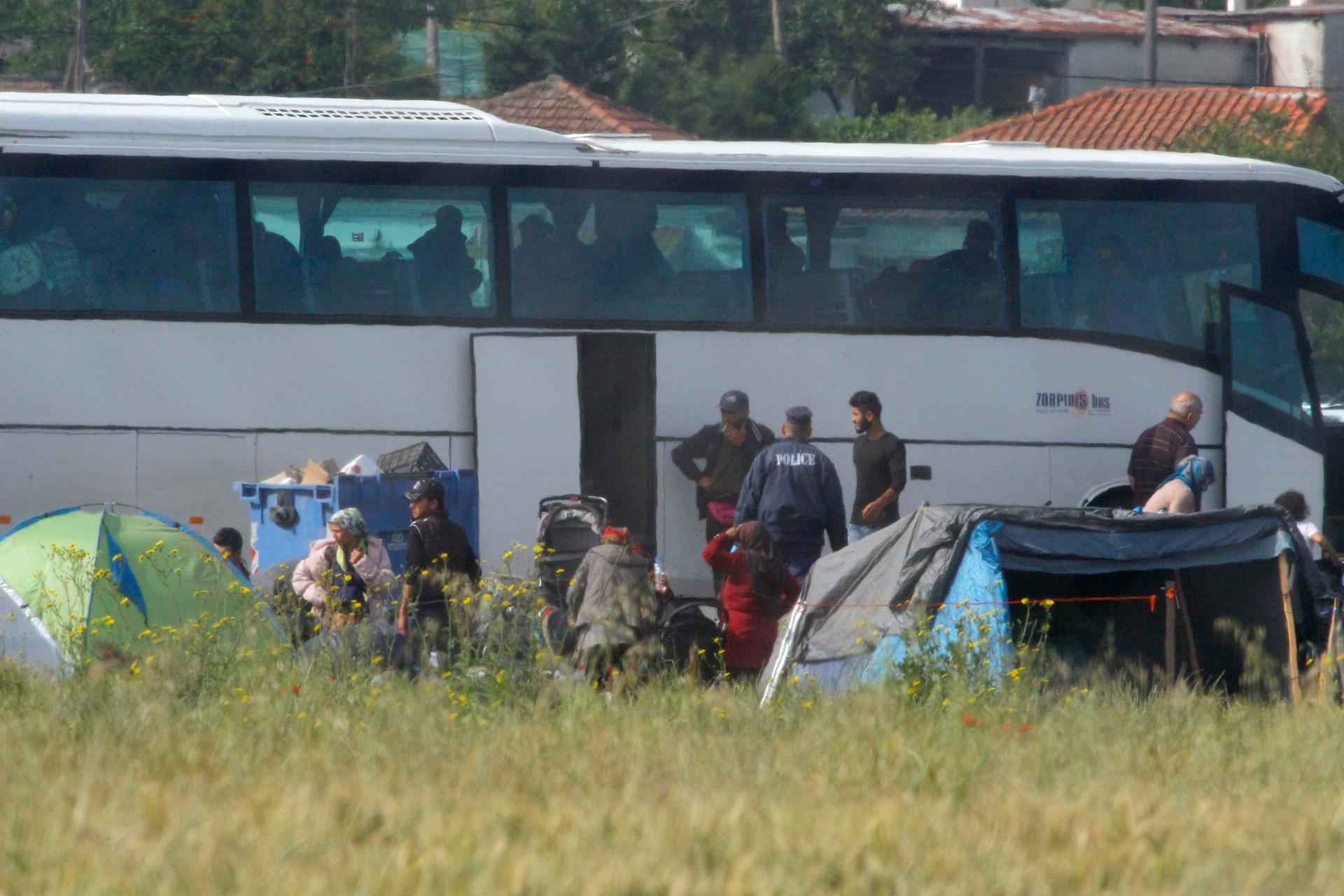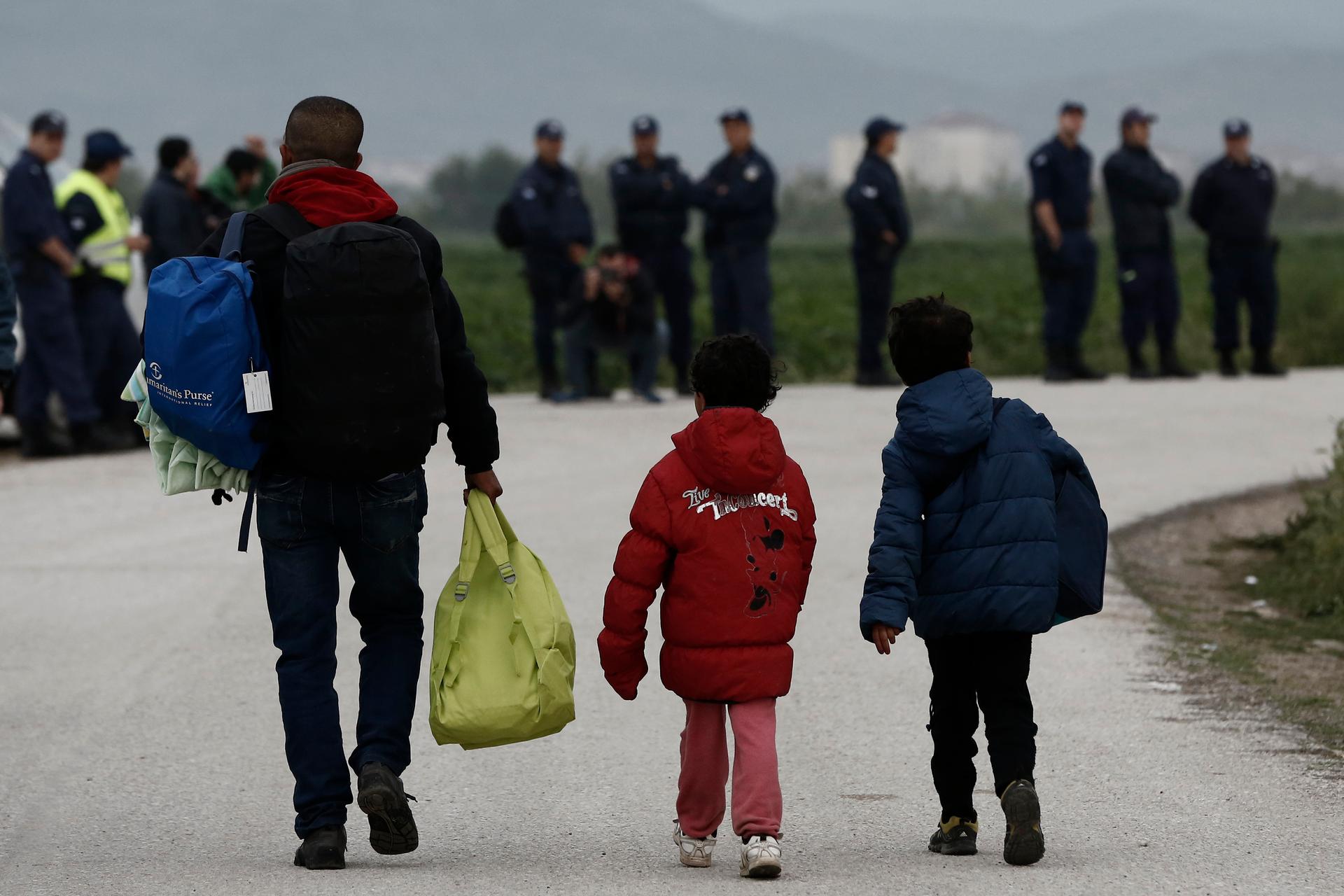Greek police are moving thousands of refugees out of the Idomeni camp
Refugees carry their belongings in front of riot policemen during a police operation at a refugee camp at the border between Greece and Macedonia, near the village of Idomeni, Greece, 24 May 2016.
Authorities in Greece have started evacuating the Idomeni refugee camp. Conditions have been described as squalid, and there have been recent reports of violence flaring up between refugees and police.
But still, international aid groups are calling for caution.
“We understand why the Greek authorities want to move people into more formal camps, because the conditions in Idomeni have been miserable,” said Helle Thorning-Schmidt, the former Prime Minister of Denmark and CEO of Save the Children International.
“But we are urging that the Greek authorities do this in a peaceful way and with dignity.”
Authorities have stressed that physical force will not be used, and there have been no reports so far of clashes between camp residents and police.
Over 1,000 people are reported to have already left Idomeni today on buses heading for new, purpose-built facilities further south.
Thorning-Schmidt believes the new camps will be “much better” than Idomeni, but there remain concerns about some of the basic infrastructure and facilities at these locations. She is particularly worried about the apparent lack of specialized services for children.
“Children need safe places. They need to be able to be secure at all times,” said Thorning-Schmidt. “We are concerned about [the provision of] things like shelters for children that are travelling alone.”

The Idomeni camp has been seen by some as emblematic of Europe’s collective failure to properly deal with the international migrant crisis.
EU countries signed an agreement last summer promising to help Greece by taking their share of refugees arriving in Europe. The plan was to relocate 160,000 people from temporary camps in Greece and Italy to other countries around the continent. A more recent deal between the EU and Turkey also hoped to relieve some of the pressure in Greece.
But little progress has been made with either plan.
According to Thorning-Schmidt, European leaders need to focus more on the humanitarian response to the situation.
“This situation is very complex and countries have the right to manage and secure their own borders,” she said. “But we also have to see this from the ground, where things are just not working."
“If you look at the EU-Turkey deal, it doesn’t seem to be a workable solution. Many families, including children, are left in a limbo in Greece and the Balkans, without a proper place to stay."
“Young children, pregnant women, and elderly people are sleeping rough. They are sleeping in fields and train stations for months on end. I don’t think that’s an acceptable situation in Europe.”
“One of the things I hope European leaders will do right now, is to put more resources into the humanitarian response on the ground in Greece. We don’t need more paperwork. We need resources … to provide basic needs such as food, water and medical care for these people.”
Every day, reporters and producers at The World are hard at work bringing you human-centered news from across the globe. But we can’t do it without you. We need your support to ensure we can continue this work for another year.
Make a gift today, and you’ll help us unlock a matching gift of $67,000!
